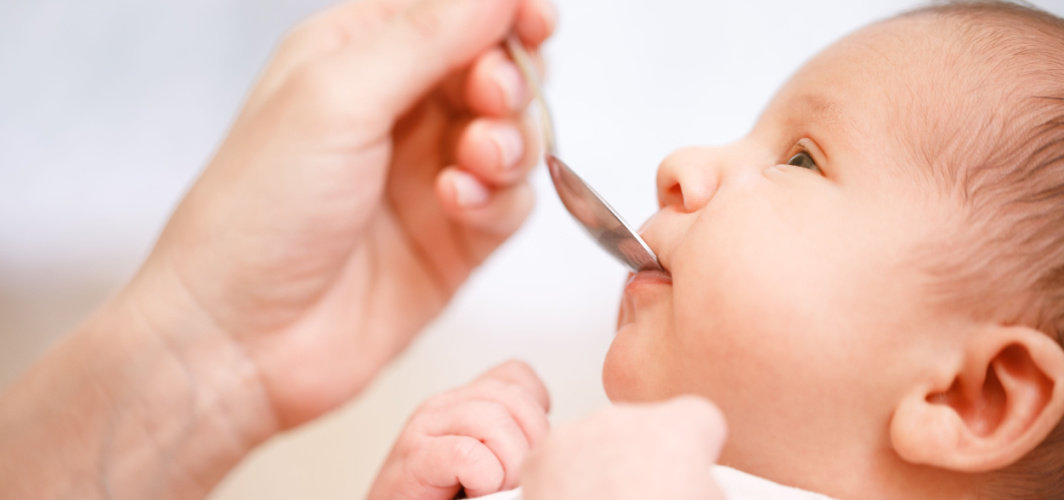- Home
- Blog
- Mom & Baby Care
Third Trimester Of Pregnancy: Here’s What To Do And What Not To Do
Mom & Baby Care
Third Trimester Of Pregnancy: Here’s What To Do And What Not To Do
By Apollo 24|7, Published on- 15 February 2023, Updated on -06 February 2025
Share this article
0
0 like

The third trimester is the last phase of the 40-week journey of pregnancy. It starts from the 29th week and can end at the 38th or 40th week depending on when the baby is ready to be delivered. During this trimester, the mother would experience a lot of movements from the baby. By this time, the baby develops all the organs and can see and hear voices. However, there are some dos and don’ts that must be followed to ensure the safe delivery of a healthy baby.

What changes are experienced in the third trimester of pregnancy?
By the third trimester, pregnant women may experience great discomfort as the foetus grows in size and takes up all the space present in the abdominal cavity. Thus making it difficult for some women to take deep breaths and sleep comfortably at night.
The changes that can be experienced by a pregnant woman during the third trimester include:
- Increased body temperature because the foetus starts radiating body heat
- Reduced blood pressure as the foetus may put pressure on the superior vena cava (the main blood vessel that returns blood to the heart).
- Persistent swelling on the ankles, hands and face due to retained fluids in the body
- Frequent cramps in the legs
- Experiencing false labour (called Braxton-Hicks contractions) at irregular intervals
- Presence of stretch marks over the stomach, breasts, thighs and hips.
- Leakage of milky-white (colostrum) from the nipples
- Dryness and itching especially on the stomach
- Reduced sex drive
- Dark skin pigmentation on the face
- Growth of coarse hair on the arms, legs and face due to increased release of androgens in the body
- Increased white-coloured vaginal discharge (leukorrhoea)
- Persistent severe backaches
- Urge to urinate frequently as the uterus again puts pressure on the urinary bladder
- Severe constipation and haemorrhoids (piles)
- Indigestion and heartburn and indigestion may continue.
- Varicose veins (enlarged, swollen veins) may occur due to increased body weight
Recommended read: The Importance of Staying Active Before Delivery
Do's during the third trimester of pregnancy
Things that should be followed during the third trimester of pregnancy include:
- Consume a well-balanced diet filled with enough proteins, carbohydrates, vitamins, minerals and other necessary nutrients for the proper growth and development of the baby.
- Add calorie-rich foods such as pork, chicken, oily fishes, beans, milk, eggs, cheese, potatoes, whole grain foods (pasta and bread), nuts and nut butter (almond butter and peanut butter, if not allergic), olives and avocados in the diet as the foetus would be requiring additional 450 calories for the growth.
- Sleep on the left side of the body as sleeping on the back can increase the discomfort and can even restrict the flow of blood to the uterus.
- Take the prenatal supplements (given before the baby is born) of folic acid, vitamin D and iron as per the advice of the doctors.
- Indulge in some kind of moderate-intensity aerobic exercises such as brisk walking, swimming, yoga and pilates daily for at least 30 minutes a day or 150 minutes a week to prevent obesity.
- Brush and floss regularly to prevent pregnancy gingivitis (inflammation of the gums during pregnancy).
- Wear anti-skid slippers while using the washroom or going up and down the stairs.
- Consume vitamin C-rich foods such as amla (Indian gooseberry), lemon, oranges and other citrus foods to keep the gums healthy.
- Sleep as much as possible because once the baby is delivered, the mother would not be able to get an ample amount of sleep and rest.
By this time, the baby would have grown 19 to 21 inches long and can weigh around 2 to 4 kilograms.
Don'ts during the third trimester of pregnancy
Things that must be avoided during the third trimester of pregnancy include:
- Do not resort to junk and processed foods for additional calories as it contains a lot of salt and can result in high blood pressure. Consumption of processed foods such as cakes, pastries and chips can also result in obesity, thus increasing the risk of gestational diabetes (high blood sugar during pregnancy) and even preterm birth of the baby.
- Avoid travelling until inevitable as it can put both the mother and the baby at unnecessary risk.
- Avoid wearing high-heeled footwear as they are prone to cause accidents.
- Avoid getting exposed to lead-based products such as lead paint or dust as it can result in miscarriage, premature delivery and low birth weight.
- Do not get exposed to x-rays and other kinds of radiation until extremely necessary.
- Stay away from household chemicals such as paint thinners, cleaners and air fresheners as they can be toxic.
- Avoid doing high-intensity exercises such as weight training, heavy lifting and sit-ups, as they can induce premature labour and bleeding.
- Do not indulge in any form of exercise that requires lying on the back for too long as it can hamper the blood supply to the uterus.
- Do not consume alcohol until the baby is born.
- Limit or avoid caffeine consumption as it can cross the placental barrier and result in low birth weight.
- Do not consume raw or undercooked meat, organ meats and seafood as they can cause various infections such as Listeria and toxoplasmosis. These infections can result in miscarriage and other pregnancy-related complications.
- Avoid consuming fish such as king mackerel, tuna, shark, sea bass, tilefish, swordfish and bluefish as they contain high mercury content.
- Do not consume unpasteurised milk or milk products as they may contain infectious bacteria such as Campylobacter, Brucella and Listeria, which can increase the risk of miscarriage, stillbirth, preterm delivery and foetal death.
- Quit smoking completely as the nicotine, carbon monoxide, and other chemicals of the cigarette can result in miscarriage, stillbirth, low birth weight or sudden infant death syndrome (SIDS).
- Do not consume any over-the-counter available medicine or herbal supplements without consulting the doctor.
Also read: Managing Stress During Pregnancy Through Ayurveda
What to expect while going for a prenatal visit during the third trimester?
Prenatal visits during the third trimester would prepare the mother for the delivery of the baby.
- During the prenatal visits in the third trimester, the doctor would examine the pregnant woman’s weight, blood pressure, and the height of the fundus (the top portion of the uterus) along with the position, growth and heartbeat of the fetus.
- The doctor may also examine the urine of the pregnant woman to determine the risk of preeclampsia (dangerously high blood pressure), toxaemia and diabetes.
- The frequency of prenatal visits also increases from monthly to every two weeks. Depending upon any underlying medical condition of the mother and the growth and development of the foetus, prenatal visits can be scheduled once every week in the last month of pregnancy.
- In the last few weeks (at around 38 weeks), the doctor would perform a pelvic exam to examine the expansion and effacement (thinning) of the cervix.
- The doctors may also educate the mother about the contractions and the procedures of the delivery.
In the third trimester, the pregnant woman prepares themselves for the delivery of the baby. The mother can start getting uncomfortable during this period due to the increased size of the foetus and may even experience false labour contractions. A new to-be-mother may also consider taking childbirth classes to stay prepared for the birth of their child. For more information,
Consult An Apollo Gynaecologist
Medically reviewed by Dr Sonia Bhatt.
Services
Mom & Baby Care
Leave Comment
Services
Recommended for you

Mom & Baby Care
Patchy Scalp Of Babies: Know How To Deal With It
Cradle cap, also known as congenital seborrheic dermatitis, is an itchy, scaly skin on newborns' scalps, eyebrows, and eyelids. Check out this guide to find out precisely what is cradle cap and how you can treat it!

Mom & Baby Care
The Roadmap To A Baby's Essential Milestones In The First Year
Developmental milestones occur throughout a baby's first year. Babies crawl, walk, develop language skills and recognise familiar faces and voices. Being aware of these milestones is important for parents and they help ensure the baby is growing and developing normally.

Mom & Baby Care
Is Gripe Water Beneficial For Babies?
Discover whether gripe water is a safe and effective remedy for common infant digestive issues. Learn about its ingredients, possible side effects, and expert recommendations.
Subscribe
Sign up for our free Health Library Daily Newsletter
Get doctor-approved health tips, news, and more.

